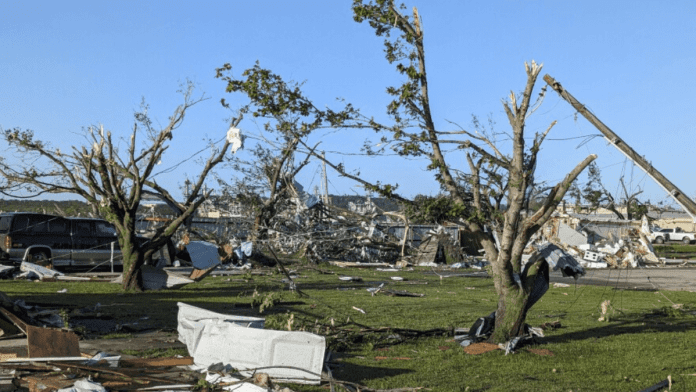News in Brief:
USDA provides temporary aid to 1,000 low-income Oklahoma households affected by recent storms, highlight the vulnerability of rural farming communities.
In the wake of devastating storms and tornadoes that struck Oklahoma starting April 25, 2024, the USDA has stepped in with a crucial support program. The Disaster Supplemental Nutrition Assistance Program (D-SNAP) will offer temporary aid to approximately 1,000 low-income households that would typically not qualify for regular SNAP benefits.
While this initiative focuses on low-income households, it also indirectly impacts local farmers. As families receive financial assistance to purchase groceries, the demand for agricultural products in the area could see a modest uptick. However, this relief is short-term and highlights a deeper issue, the vulnerability of rural farming communities to natural disasters.
Farmers in Oklahoma, already struggling with the financial strain from the storms, might experience a slight economic boost as D-SNAP recipients spend their benefits on locally grown produce. Yet, this surge in demand is unlikely to offset the extensive losses farmers face. Tornadoes and severe storms have likely damaged crops, livestock, and infrastructure, adding to the ongoing challenges of farming in disaster-prone areas.
While the aid initiative provides immediate relief, the focus must shift toward long-term solutions for agricultural resilience. Programs that support rebuilding farm infrastructure, investing in disaster-resistant farming techniques, and providing financial aid to farmers are essential.
This disaster emphasises the need for a more robust support system for farmers. Policymakers must prioritise agricultural resilience to ensure that farmers can recover swiftly and continue to provide for their communities. With climate change increasing the frequency of extreme weather events, building a sustainable and disaster-resilient agricultural sector is not just necessary but urgent.



